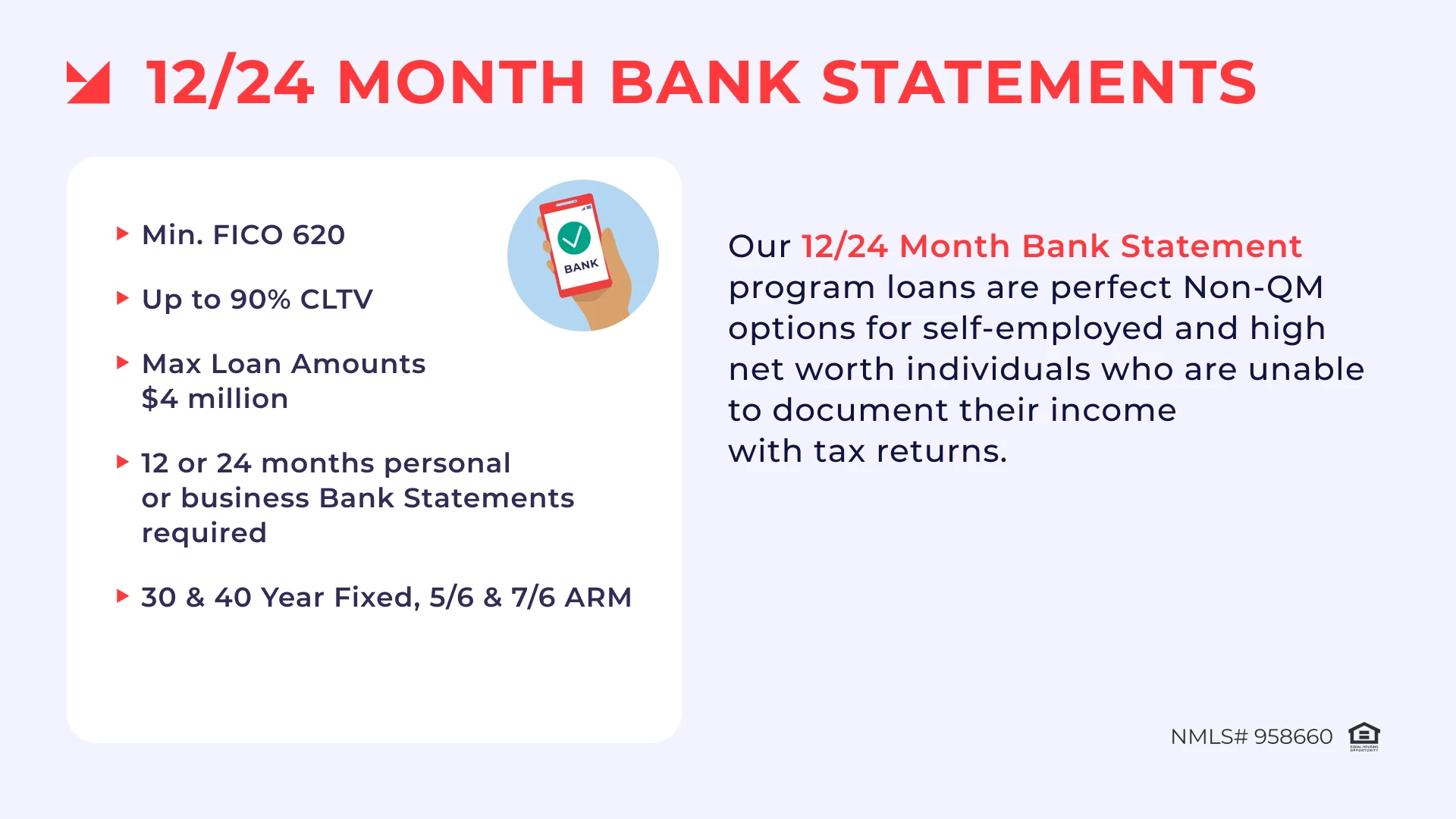


Bank Statement Loans Explained
In recent years, bank statement loans have gained popularity among self-employed individuals and entrepreneurs looking for a way to secure financing without the traditional income verification process. These loans are designed to evaluate an applicant’s income based on their bank statements rather than the conventional pay stubs or W-2 forms.
What is a Bank Statement Loan?
A bank statement loan is a type of alternative financing that allows borrowers to use their bank statements as proof of income. Lenders analyze the average monthly deposits over a specified period—typically 12 to 24 months—to gauge a borrower’s ability to repay the loan. This type of loan is particularly beneficial for those with fluctuating income or who have significant income that's difficult to document, such as commissions, bonuses, or irregular earnings.
Who Can Benefit from Bank Statement Loans?
Self-employed individuals, freelancers, and small business owners are the primary candidates for bank statement loans. Traditional lenders often require exhaustive financial documentation, which can be a barrier for those whose income isn’t easily provable. With bank statement loans, applicants can demonstrate their financial health through their banking transactions.
Advantages of Bank Statement Loans
- Less Documentation Required: Borrowers aren’t required to provide lengthy tax returns or proof of income, streamlining the application process.
- Flexible Qualifying Criteria: Lenders may offer more flexible terms when considering the borrower’s overall financial picture.
- Access to Homeownership: For those who've been struggling to find a mortgage due to irregular income, bank statement loans can be a viable pathway to homeownership.
Considerations and Tips
While bank statement loans can open doors for many, it's essential to consider a few things:
- Higher Interest Rates: Be prepared for potentially higher interest rates compared to traditional loans due to the increased risk lenders face.
- Understanding the Terms: Always read the fine print and ensure you understand the terms and conditions before committing to a loan.
- Work with a Trusted Broker: As with any financial product, consult with an experienced mortgage broker who can guide you through the available options and help you find the best fit for your needs.
Conclusion
Bank statement loans can be an excellent option for many self-employers looking to secure financing without the hassle of traditional income verification. By understanding what these loans entail and working with knowledgeable professionals, you can find the ideal path to homeownership.
